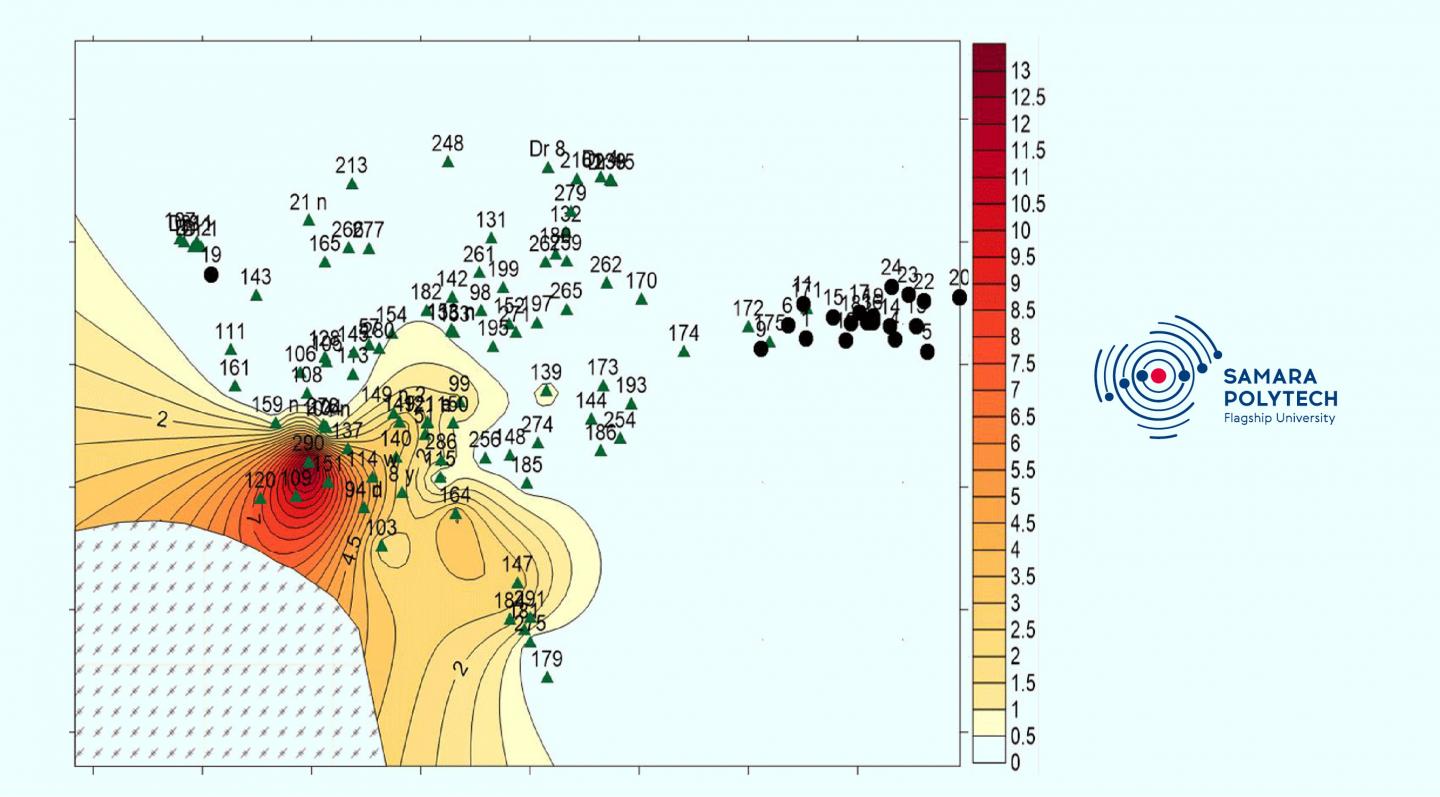New method will ensure environmental safety in oil production

Credit: @SAMARAPOLYTECH
Reconstruction of factories (the construction of modern parks and the removal of communications on racks) significantly prevents the penetration of petroleum products into the ground. However, wastes, accumulated as a result of the activities of oil refineries, continue to have a negative impact on the environment. The method developed at Samara Polytech will allow not only to monitor the state of groundwater, but also to predict the movement dynamics of the lens, on which depends the stability of the grounds under the building structures.
– Without knowledge of the geophysical processes, hydrodynamics of groundwater, the regularities of their movement in the layers in this area, it is very difficult to predict the important parameters of the lens, its volume and the qualitative composition of oil products contained in it, – explains Olga Tupitsyna, who is the Project Manager, Doctor of Technical Sciences, Professor of the Chemical Technology and Industrial Ecology Department, Leading Specialist at the Scientific and Analytical Center for Industrial Ecology.
Under her leadership, an interdisciplinary team of scientists and students of Samara Polytech has developed a groundwater research program that allows predicting the direction of lens movement during seasonal changes in water levels in water storages, with active operation of the water intake area, on exposure to the layer from the main production site of the enterprise. The resulting mathematical model will also determine the localization of the sources of concentration of petroleum products, quickly extract them and effectively clean the soil, ground and groundwater.
The latest research results were published in a number of major Russian and international publications Ecology and Industry of Russia, Scientific Works of the Kuban State Technological University, Chemistry. Ecology. Urban Science, Innovative Approaches to Solving Modern Problems of Rational Use of Natural Resources and Environmental Protection, etc.
For reference:
Oil lens is an artificial underground oil accumulation at the groundwater level, resulting from the leakage of oil and oil products from underground pipelines.
The Scientific and Analytical Center for Industrial Ecology was established at Samara Polytech in 2001 under the leadership of the Rector, Doctor of Technical Sciences, Professor of the Department of Chemical Technology and Industrial Ecology, Certified Environmental Auditor, Member of the Russian Environmental Audit Chamber Dmitry Bykov. Scientists of the center solve priority environmental problems. For example, they carry out chemical analyzes of soils, wastes, waste and exposed waters, take part in the preparation of permits for various investment projects for technical re-equipment of enterprises, etc.
Samara Polytech is a Flagship university, a powerful research and educational center and a leader in the preparation of elite engineering personnel. Scientists guide research and development in almost all strategic sectors: Petrochemistry, Oil and Gas Production and Processing, Energy, Information, Pharmaceutical and Food Technologies, Construction and Architecture. In addition, the university actively participates in the State Armament Program, in solving strategic problems of the region and implementing significant projects of federal significance. University graduates are famous Russian scientists, government officials, leaders
of leading companies.
###
Media Contact
Olga Naumova
[email protected]




